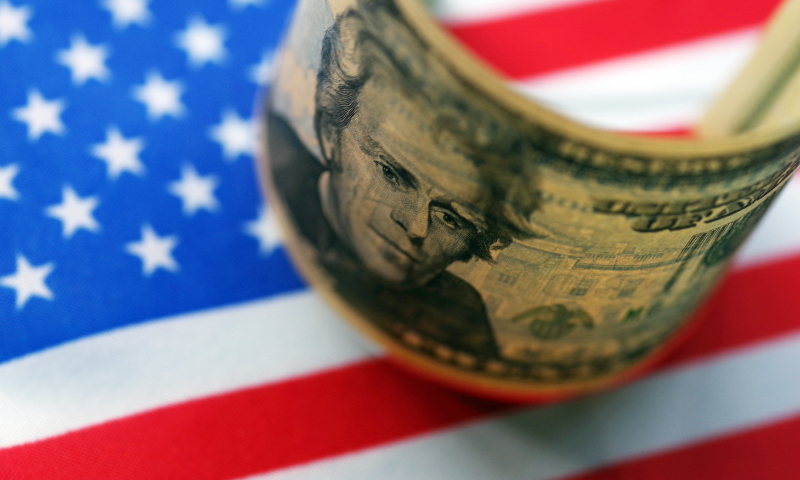US consumer prices in August rose 3.7 percent year-on-year, a second consecutive month of increased inflation, according to data released on Wednesday. It was also the largest month-on-month increase in 14 months, suggesting mounting inflationary pressures, and it intensified the dilemma faced by the Federal Reserve, raising concerns about a potential recession, economists said.
Data from the US Bureau of Labor Statistics showed that the US Consumer Price Index (CPI) rose by 3.7 percent year-on-year in August, higher than the market expectation of 3.6 percent. On a monthly basis, it rose from 0.2 percent in July to 0.6 percent.
The Federal Reserve will hold its monetary policy meeting for September on September 21. Based on recent statements from the Fed and the latest data, a 25 basis point rate hike is highly likely, Tian Yun, a veteran economist based in Beijing, told the Global Times on Thursday.
Since March 2022, the Fed has raised interest rates by 525 basis points to control inflation, marking one of the most aggressive rate paths in nearly 40 years.
Fed officials have been divided over the need for more interest rate hikes as excessive tightening could push up unemployment and spur a recession.
The American Bankers Association’s Economic Advisory Committee expects to see an uptick in unemployment and believes the chances of a recession are reaching 50 percent for 2024.
Jonathan Pingle, chief US economist for UBS Group AG, sees a mild recession in the US starting toward the end of this year as “more and more households are going to be forced to confront their budget constraints,” according to a Bloomberg report.
Although it is too early to determine whether the US economy will enter a recession, the excess savings of the US household sector built up during the pandemic are shrinking, Tian said.
More than half of 526 respondents said that personal consumption, the most important driver of US economic growth, will shrink in early 2024, which would be the first quarterly decline since the onset of the COVID-19 pandemic, according to a Bloomberg survey.
The significant decline in consumption is a result of declining investor confidence, and the root cause lies in the Fed’s inconsistent monetary policy, Chen Jia, an independent analyst on global strategy, told the Global Times on Thursday. The risk of a hard landing for the US is increasing, Chen said.
The cooling of the US economy and the extreme monetary policy drags down the global economic recovery and poses serious challenges to developing countries and emerging economies, experts said. Recent attempts by the US to blame China for global economic weakness are clearly attempts to shift blame, they added.
“Smearing the Chinese economy is a common practice by the US to suppress China. The purpose is to drive global private capital back to the US,” Tian noted.
Recently, some Western politicians including US President Biden claimed China’s growth was slowing due to a weak global economy as well as Chinese policies.
China’s economy has not collapsed, but on the contrary, hype that it has done so has repeatedly proven to be false, said Chinese Foreign Ministry spokesperson Mao Ning on Tuesday, defying Western smears that China’s economy is facing difficulties and slowing down.
“All sorts of comments predicting the collapse of China’s economy keep resurfacing every now and then. But China’s economy has outlived them all. What has collapsed is such rhetoric, not China’s economy,” Mao said.
China’s first-half GDP grew by 5.5 percent year-on-year, significantly faster than the 3 percent growth last year. The IMF predicts that China’s economy will grow by 5.2 percent this year and contribute one-third to global economic growth.
(Global Times)




